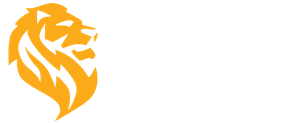Leveraging Corporate-Owned Life Insurance in an MSO for Business Continuity
How COLI-backed deferred comp plans funded through MSOs solve real business risks while maximizing tax and legacy value.
As successful business owners scale their operations, the risks they face evolve beyond simple operational issues. It’s no longer about just running the company — it’s about protecting the enterprise you’ve built, attracting and retaining top-tier talent, and planning for smooth ownership transitions. Whether you’re preparing for retirement, a buyout, or even planning for the unexpected, having access to tax-advantaged capital and reliable liquidity is critical.
One of the most effective ways to prepare for these moments is by combining three powerful tools: the Management Services Organization (MSO) structure, Corporate-Owned Life Insurance (COLI), and a nonqualified deferred compensation plan (DCP). When layered together correctly, this strategy protects the company, rewards leadership, and builds long-term wealth — all with remarkable tax efficiency.
What Is Corporate-Owned Life Insurance (COLI)?
Corporate-Owned Life Insurance (COLI) is a permanent life insurance policy purchased by a business on the lives of key executives, owners, or top-level employees. The company is both the policy owner and the beneficiary, and it pays the premiums using business funds. These policies are not meant to replace personal life insurance — instead, they serve as strategic business assets.
COLI offers several core advantages:
- The death benefit is generally tax-free, providing liquidity when the business needs it most.
- The policy’s cash value grows tax-deferred, improving balance sheet strength over time.
- Many COLI products are guaranteed issue, meaning no medical underwriting is required for qualifying participants.
- Premiums benefit from institutional pricing, offering businesses the lowest cost per dollar of coverage compared to retail life insurance.
- The policies are balance-sheet positive from day one, building a real, appreciating asset that can support bank covenants and financial reporting.
Traditionally used by Fortune 500 firms and banks to manage executive benefit obligations, COLI is now widely accessible to privately held companies — especially when combined with an MSO to maximize funding efficiency.
The Problem: Business Owners Are Exposed
Even the most profitable and well-managed businesses face three major vulnerabilities:
- Key person risk: If a founder or rainmaker dies, the business could suffer financially and operationally. Most businesses have no plan or funding to replace that individual’s contributions in a timely or cost-effective way.
- Lack of liquidity: Whether it’s a buy-sell agreement, executive retirement plan, or estate obligation, many businesses have future funding needs — but no dedicated capital set aside.
- Tax inefficiency: Profits in pass-through entities are taxed at the individual level — often at federal rates of 37% plus state tax and a 3.8% NIIT. This reduces the business’s ability to save or reinvest.
Without a structure in place, owners often delay planning or attempt to use after-tax personal income to meet business needs — a path that is inefficient and unsustainable.
The MSO: Unlocking Capital Through Structure
An MSO is typically structured as a C-Corporation and operates as the administrative and strategic services company for your primary operating entity (OpCo). It centralizes executive oversight, HR, compliance, finance, IT, and marketing functions, billing the operating company for those services. In addition to reducing liability and clarifying cost allocation, the MSO structure creates significant tax advantages.
Unlike a pass-through entity, which flows profits directly to the owner’s 1040, an MSO taxed as a C-Corp pays a flat 21% federal rate on its retained earnings. That means owners retain up to 44% more per dollar inside the MSO than they would after personal taxation — a powerful advantage when accumulating capital for future plans.
Over time, this retained capital becomes a funding engine for life insurance, deferred compensation plans, or even internal financing. It allows the company to plan proactively — not reactively — using smarter dollars to solve problems before they happen.
Using COLI Inside the MSO
When an MSO accumulates capital through tax-efficient retention, it can fund Corporate-Owned Life Insurance in a way that is both financially powerful and strategically smart.
The MSO purchases a COLI policy on one or more key executives or owners. The policy is structured for maximum cash value growth and long-term death benefit protection. Premiums are paid using retained earnings taxed at 21%, rather than 37% or higher at the personal level.
The COLI policy can then serve multiple strategic roles:
- Key-Person Insurance: If the insured dies, the MSO receives a tax-free death benefit to fund leadership transition, operations, or hiring.
- Buy-Sell Agreement Funding: For multi-owner businesses, COLI provides immediate, tax-free liquidity to buy out the deceased owner’s estate.
- Deferred Compensation Payouts: When paired with a DCP, COLI creates the reserve that allows the MSO to meet long-term compensation obligations.
- Estate Liquidity: Policies can be used in coordination with ILITs or SLATs to provide estate tax funding, preserving family wealth.
This is why COLI is not just insurance — it’s a long-term capital reserve, layered with tax advantages and strategic planning flexibility.
Deferred Compensation: The COLI-Backed Wealth Engine
A Nonqualified Deferred Compensation Plan (DCP) lets owners and executives defer current income to future years. The MSO records the obligation but does not trigger taxation until payments are made. When the MSO owns a COLI policy aligned with the DCP schedule, it gains two advantages:
- Tax-deferred investment inside the policy, growing to meet future benefit payments.
- Tax-deductible payouts when the MSO eventually converts to an S-Corp and begins distributions.
In one real example, a business owner deferred $2 million per year for 7 years using an MSO-funded DCP, with earnings growing at a 7% rate inside a COLI-backed reserve. Over a 15-year post-sale payout period, the MSO structure provided $46,036,811 in net benefit — compared to just $18,848,995 using a pass-through structure.
That’s a 144% increase in long-term wealth, simply by using better structure and timing.
The COLI policy protected against premature death, funded future payouts, and allowed the owner to extract value from the C-Corp without dividend tax risk.
Enterprise Benefits Beyond Tax Savings
This structure doesn’t just help with taxes — it builds real enterprise value:
- Improved EBITDA by clearly separating SG&A
- Stronger balance sheets with COLI assets
- Better M&A readiness for acquirers who want clean contracts and transition plans
- Employee retention through deferred comp plans
- Legacy and family planning through insurance-funded liquidity
Owners gain clarity, control, and long-term financial power — not just for themselves, but for the business they leave behind.
How Guardian Tax Consultants Helps
At Guardian, we help business owners design, structure, and implement these integrated strategies from start to finish. We collaborate with your attorneys, insurance professionals, and financial teams to:
- Form and structure your MSO
- Align COLI policies with DCP benefits and future liquidity needs
- Handle regulatory compliance and documentation (IRC §101, §409A, §83)
- Oversee conversions, funding schedules, and exit alignment
- Provide white-glove support across every stage of planning
We don’t sell policies — we design the structure that makes them work smarter.




